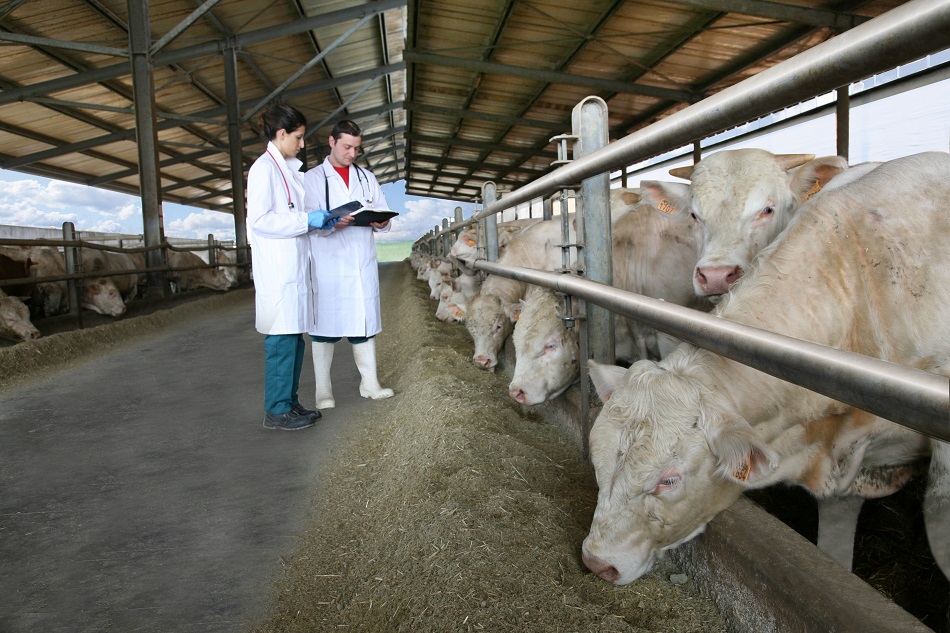EAAP: "Promoting animal health and welfare via pathogens control"

Animal health and welfare are research themes with a multispecies nature, supported by several underlying veterinary disciplines, such as epidemiology, virology, parasitology and bacteriology, and the scientific domains of ethology, preventive veterinary medicine, and stress physiology. The European Federation of Animal Science (EAAP) organises a monthly series of webinars to inform, update, and disseminate the latest scientific literature through high-profile speakers to the EAAP individual members. The 17th EAAP Webinar, “Promoting animal health and welfare via pathogens control“, organised in collaboration with the EAAP Commission on Animal Health & Welfare, aimed to support scientific debate on issues related to the health and well-being of all livestock species.
The presentation by Christian Ducrot from INRAE, in France, focused on “Animal health and welfare via pathogens control“, and it took an interdisciplinary approach towards animal health and the welfare of farm animals. The presentation began by explaining the traditional farming approach to improving animal health, which is centred around protecting animals from pathogens, which also protects human health. This approach involves biosecurity measures to prevent contact with infectious threats, vaccination and eradication plans to control specific infectious diseases, and keeping animals indoors to control various environmental infectious and parasitic diseases. Control of pathogens is one of the main means of prevention used by veterinarians to protect animal health on farms, as are good environmental conditions and nutrition to support resistance to infections and boost immunity, decreasing the need for antibiotics.
Today, some farmers tend to refuse antibiotic treatment for diseased animals to keep the “antibiotic-free” label. But this can cause poor animal health and have a negative welfare impact since antibiotics in certain conditions are necessary for good animal health and welfare. For this reason, there is a strong demand by veterinarians and parts of the livestock sector for health and welfare monitoring tools and indicators on farms, which are better for tracking the need and the use of antimicrobials. The same could arise for parasitic control.
Good animal health is one component that feeds into an animal’s overall welfare standard. That said, it is evident that any disease-inducing pain, suffering, and decreased physical skills will impact that animal’s welfare, so we can state that controlling pathogens results in fewer diseases, better animal health and, consequently, better overall welfare. But there are also conflicting aspects between pathogen control and welfare. As previously determined, pathogen control positively impacts animal and human health in the context of zoonotic diseases and remains a primary means to control infectious diseases. However, most means of pathogen control decrease the freedom of animals to express normal behaviour, such as outdoor exploring and foraging. So, how can we balance its positive and adverse events?
There are different perceptions about the relationship between animal health and welfare. The main goal of veterinarians is to keep animals in good health, while some farmers prioritise maintaining good health and emphasising their animals’ well-being. And, of course, nowadays, the point of view of citizens and consumers has a huge impact on the future of how we farm animals. A systematic review of public attitudes, perceptions and behaviours towards livestock production diseases associated with farm animal welfare indicates that the most concerned by welfare considerations are women, young generations and people with higher education. Moreover, the measurement of naturalness is another central component in determining animal welfare because it concerns animal behaviours and living conditions, such as enough space, freedom to behave according to natural instincts and outdoor access. A farm animal’s ability to exhibit natural behaviours is so vital to its overall welfare that efforts to protect health at the expense of naturalness are not supported. Depending on the stakeholders, pathogen control should not be preferred at any cost. A balance needs to be analysed, which may depend on the dangerousness of the pathogens, zoonotic risk, and crucial aspects of the control measures. Societal concern tends to favour naturalness to the detriment of animal health and the need for justification, explanation and communication to implement strong disease control measures.